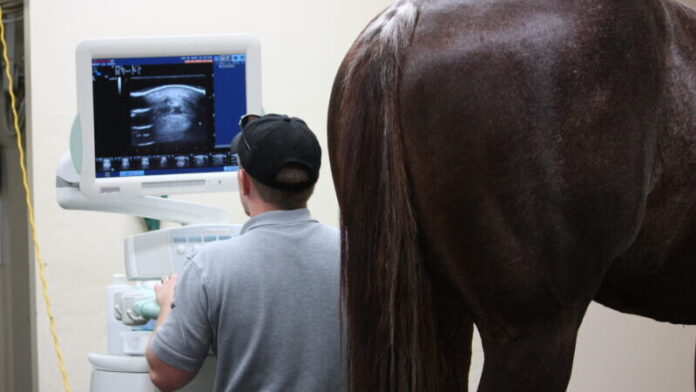A fresh study of miscarriages in horses – horses share many essential similarities with humans in terms of their chromosomes and pregnancies – found that 42% of miscarriages and unplanned abortions in the first two months of pregnancy were due to complications from an extra set of chromosomes, a condition called triploidy.
“In this embryonic phase [up to eight weeks from conception]Triploidy has rarely been observed in mammals other than females,” said Mandi de Mestre, professor of equine medicine at Cornell University College of Veterinary Medicine and corresponding author of the study. “The study shows us that this is probably the leading cause of pregnancy loss after natural conception in the first six weeks of pregnancy.”
The study, “Naturally occurring equine model of miscarriage reveals temporal relationship between chromosomal aberration type and time of lethality,” was published in the Proceedings of the National Academy of Sciences on August 5, 2024.
Miscarriages occur in 10 to 20% of all pregnancies and are often associated with chromosomal abnormalities. However, until now there have been no suitable animal models that truly replicate the characteristics of this condition. The fresh findings will assist veterinarians better understand the causes of pregnancy loss in horses and establish horses as an excellent model for human miscarriage research.
“We were able to study the effects of chromosomal defects throughout pregnancy in horses,” said de Mestre. “We found that triploidy is only associated with losses in early pregnancy.”
Using samples, the researchers were able to examine the prevalence of different types of chromosome copy number errors associated with miscarriages. They found that chromosome errors occurred in 57.9% of miscarriages up to 55 days of pregnancy, in 57.2% of miscarriages between 56 and 110 days, and in only 1.4% of miscarriages between 111 days and the end of pregnancy. Aneuploidy (loss or gain of a single complete chromosome) was mainly associated with miscarriages in the first 10 weeks of pregnancy, while deletions or duplications of only part of a chromosome were found in miscarriages after 110 days. These results proved remarkably similar to those observed in a number of enormous studies of women, according to the study.
Horses are a good model for studying human pregnancy because they have a similar gestation period – 11 months compared to nine months in women – and the embryo develops at a similar rate in the early stages. In addition, horse chromosomes have a very similar genetic content to human chromosomes, making them particularly relevant for studying chromosomal defects.
The reasons for miscarriages in women in early pregnancy have so far been complex to determine, as most fetuses are lost at home during this phase, meaning scientists lack material – and data – for investigation. The results of the study provide information on the frequency of chromosomal defects in the corresponding period of the first six weeks of a human pregnancy.
In terms of equine health, the study provides fresh details about common chromosomal abnormalities that are likely to change the clinical management of pregnancies. For example, if a clinician finds that a horse has a earnest chromosomal defect, they may no longer choose to prolong the pregnancy by administering hormones, which is a common practice in pregnant mares. The study will also provide researchers with clues for developing fresh diagnostic tests for chromosomal abnormalities in equine fetuses and studying the molecular mechanisms that lead to these abnormalities.
The study was funded in part by the Horserace Betting Levy Board and the Thoroughbred Breeders Association.
Written by Krishna Ramanujan; the full version of this story appears in the Cornell Chronicle.
Cornell University has its own television and audio studios for media interviews. For more information about the university, visit the School of Veterinary Medicine news website.


